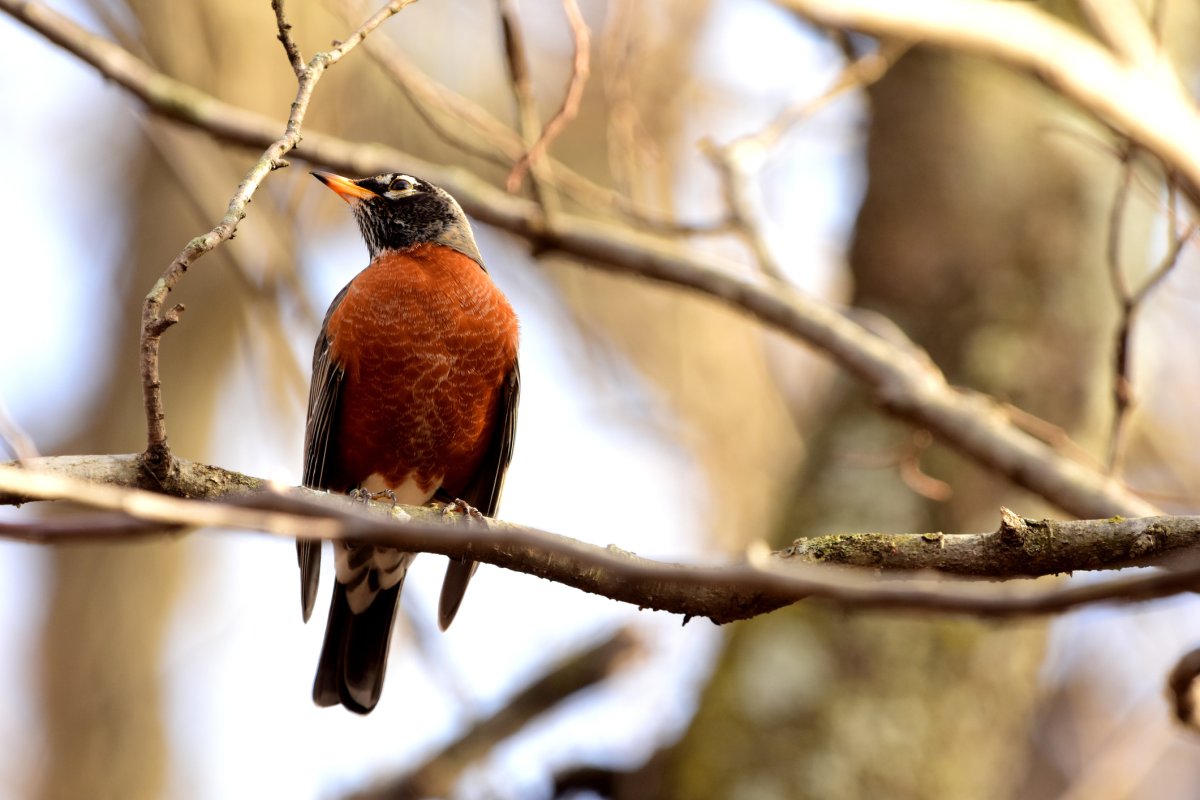American robins (Turdus migratorius) set off on their migrations 12 days earlier than they did in 1994 due to warmer, dryer winters, say scientists.
Ecologists writing in Environmental Research Letters tracked the birds' summer migrations from Mexico to Canada using GPS equipment. They found melting snow and warmer winters are causing flocks to leave their winter grounds earlier than they did in the past. In 2018, birds left 12 days earlier than they did in 1994—suggesting migrations are moving forward by around five days a decade.
Each year, flocks of a dozen to several hundred robins migrate northwards across North America. While the species spend the winter across much of the continent, the birds rarely cross north into Canada and Alaska until later in the year. According to observations made by the Lesser Slave Lake Bird Observatory (LSLBO), birds tend to arrive in these breeding grounds in late April.
Between 2016 and 2018, 55 robins netted in Slave Lake were equipped with miniature backpacks containing GPS technology to track them on their journeys from April to June, partway through their migration. These movements were compared to data on weather conditions, from snow depth and precipitation to wind speed and temperature.
The researchers found birds took off earlier in years when the winter was warm and dry, with melting snow being the most consistent factor affecting birds' movements. While temperatures are increasing worldwide, warming in Canada is taking place at roughly twice the speed of the global average.
"The one factor that seemed the most consistent was snow conditions and when things melt. That's very new," lead author Ruth Oliver, a Postdoc in Ecology and Evolutionary Biology at Yale University who completed the research while earning her doctorate at Columbia University, said in a statement.
"We've generally felt like birds must be responding to when food is available—when snow melts and there are insects to get at—but we've never had data like this before."
The paper suggests American robins have been able to display some flexibility with their timing to keep up with changes in the climate, but how much extra flexibility they can demonstrate to cope with changing weather patterns is unknown.
"The missing piece is, to what extent are they already pushing their behavioral flexibility, or how much more do they have to go?" said Oliver.
The authors hope this data can be used to build models that can predict how birds will respond as the climate continues to change and winters continue to warm.
Next, they hope to analyse samples from robins' feathers and claws collected when they were equipped with the trackers. This will help them find out where the birds settled over winter and summer in the previous year and offer a more complete picture of their migration path.
The American robin is not the only species affected by climate change. Scientists warn warmer, dryer winters are causing birds like the Black-throated Blue Warblers to adapt and advance their yearly migrations. According to a Nature study published in February, the changes are taking place more rapidly at higher latitudes.

Uncommon Knowledge
Newsweek is committed to challenging conventional wisdom and finding connections in the search for common ground.
Newsweek is committed to challenging conventional wisdom and finding connections in the search for common ground.
About the writer
To read how Newsweek uses AI as a newsroom tool, Click here.








